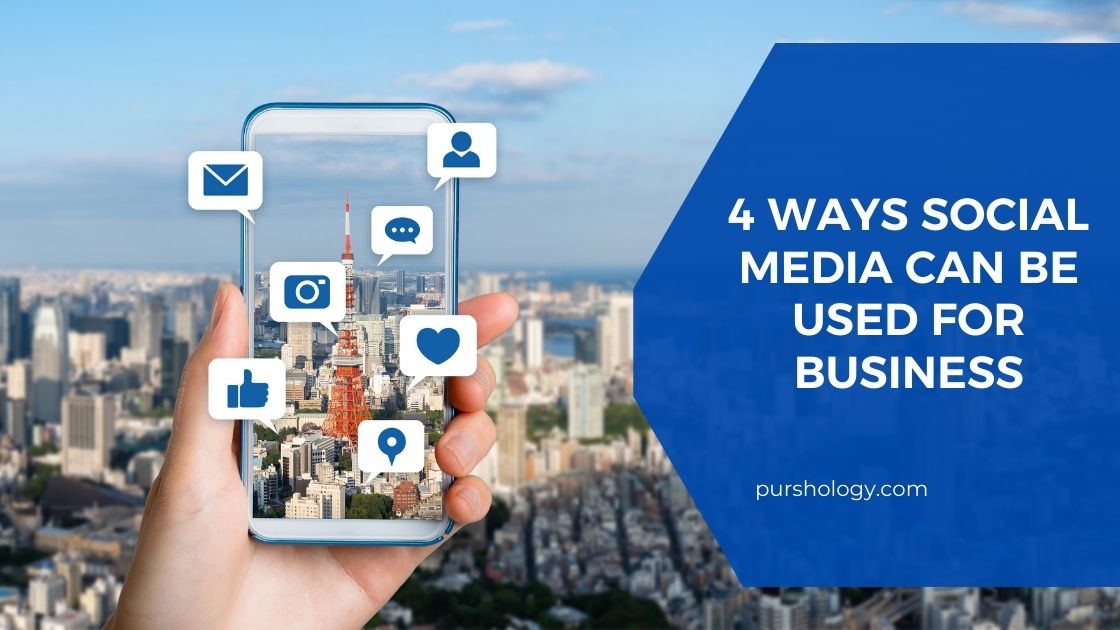Three billion nine hundred sixty million — that’s how many people are expected to be on social media this 2022. If you are a business owner on the fence about contacting that social media agency in Dubai for a consultation, climb off it already. You don’t want a social media marketing strategy. You need it.
The following are ways by which you can use social media for your business.
1. Broadcast Your Existence
Businesses need to tell people they exist. You need to tell people about you and your business. One way you can do this is by creating a profile or account on relevant social media platforms and promoting your business there.
Yes, it’s so much better if your early converts tell their friends about you, their friends try you out, and they tell all their other friends about you, too. It then snowballs from there until customers are beating down your doors. However, how likely is that to happen?
Unless you have a product or service with exceptional viral potential (remember that fidget spinner?), your story will probably go a different route. While that may happen to you in due time, it will be a lengthy process. Meanwhile, your rent will be due, and your bills will pile up while you wait for customers to learn you exist, much less try your product or service.
So, go ahead, use social media to broadcast your business to your target demographics. Use it to say, “Hey, I’m here, and I provide this and that product or service. Try us, maybe?”
2. Engage Customers and Would-Be Customers
Social media is one big party or social event. People go there to talk about anything and everything, especially on platforms like Facebook, Instagram, and Twitter. They talk about their interests and hobbies, things that annoy or anger them, and things that make them happy or sad.
In the maelstrom that is social media, your customers and target customers are talking and forthcoming with their thoughts and feelings. As a business on social media, you need to listen, empathize, interact, and respond.
This can give you two potential benefits. First, it lets you address issues, which provides you with the opportunity to turn complaints into stellar customer service experiences and reviews. Second, it helps you improve your image or create positive brand perception.
As a case in point, @bellalawtonn tweeted the boys she nannies asked where she works, and she didn’t have the heart to tell them their parents pay her to hang out with them, so she fudged and told them she works at Chili’s.
In a brilliant catch, Chili’s (@Chilis) replied to @bellalawtonn with a certificate of employment captioned, “Here is that super important documentation we were talking about from the very important people here at Chili’s.” Their response went viral.
This tweet did not cost Chili’s anything, except perhaps the salary it is already paying its social media managers anyway. However, what it did was reinforce Chili’s awesome and wholesome image — a definite branding win.
3. Demonstrate Expertise or Thought Leadership
Use social media to highlight your authority, skills, expertise, and thought leadership. Naturally, you want people to believe you’re the best and the brightest — at least when it comes to the products or services you are selling.
Say, for example, yours is a business-to-consumer (B2C) company that sells water purifying equipment. Use your Facebook account to post videos demonstrating how your product works. The video can show dirty, murky water coming in and crystal-clear water coming out.
Aside from demonstrating your expertise and authority, your videos should also be trustworthy. You can add a running timer to your video, plus include a person in the frame, too. This will demonstrate that everything was done in one take, and no video splicing or manipulation was done.
A tax consultant, for instance, can post tidbits that would make professionals on LinkedIn curious.
One post could be about how you helped a client save AED 40,000 on operational costs, and even with your bill, your client came out ahead.
Your posts should be hyper-focused on a single event or a single point. Then it should provide details so they can be insightful and valuable to the readers.
As people learn from you, you’ll be cementing your position as a thought leader in your industry.
4. Generate Leads
Social media is where people gather. As long as your customer demographics are defined and you can isolate your market for targeted messaging, social media is a rich source of leads. Use it, therefore, to drum up leads for your business.
You must have in mind that things can get very confusing while trying to find the right ‘recipe’ for converting your leads in the right way. That is why an up-to-date social advertising guide would be a great choice for you.
Creatopy’s social media advertising guide will help you navigate your way through social media platforms. With Creatopy’s guide, you can learn step by step. You will start from the basics of social media advertising to building the most successful social media advertising strategy. Of course, converting new leads is one of the guide topics.
The most important thing regarding the new leads is that you should give people valuable information about a topic that is connected with your industry, and in exchange, you will get the chance to collect people’s email addresses and similar information that may be to your advantage.
In this way, you will create a strong connection with your leads before converting them into your customers. Now in order to get something, in this case, emails or other personal info, you must give something of value to the potential customer first.
You can post an offer that your target market will find irresistible — say, 30% off on a hotel stay or weekday dinner. Send those who click on your offer to a landing page on your website, where they will fill out a lead generation form in exchange for the desired benefit.
You can also create lead-generating ads on social media to induce your target market to click and send you a message. For instance, you are a realtor promoting a particular property in your listings. If a prospect sends you an inquiry regarding that property, you can answer their inquiry, then include a clear call to action so they’ll know what they’re supposed to do next.
If leads are not ready to be sold to, make sure you nurture them. For example, a wallpaper and flooring company got leads through a deep discount offer. It did not waste the leads that did not convert to sales but nurtured them instead.
The company sent the leads emails about designing with carpet tiles and using rugs as functional decorative pieces. This way, their brand will be top-of-mind when their leads are ready to buy.
Using Social Media for Business
Social media is chaotic, noisy, and loud, but there’s room in it for your business.
Use it to build awareness for your business, engage existing and potential customers, establish expertise and authority, and generate leads you can sell to or nurture into becoming customers.
AUTHOR BIO
Stuart Harris is the Creative Director at Yellow, a Dubai branding agency, digital partner and advertising company working with progressive businesses to build bold, meaningful brands.




